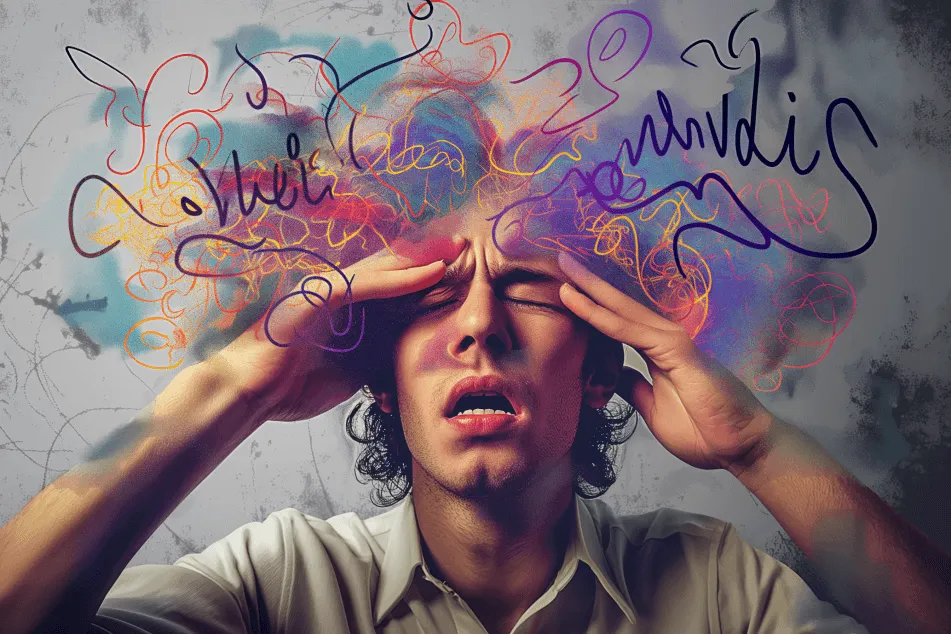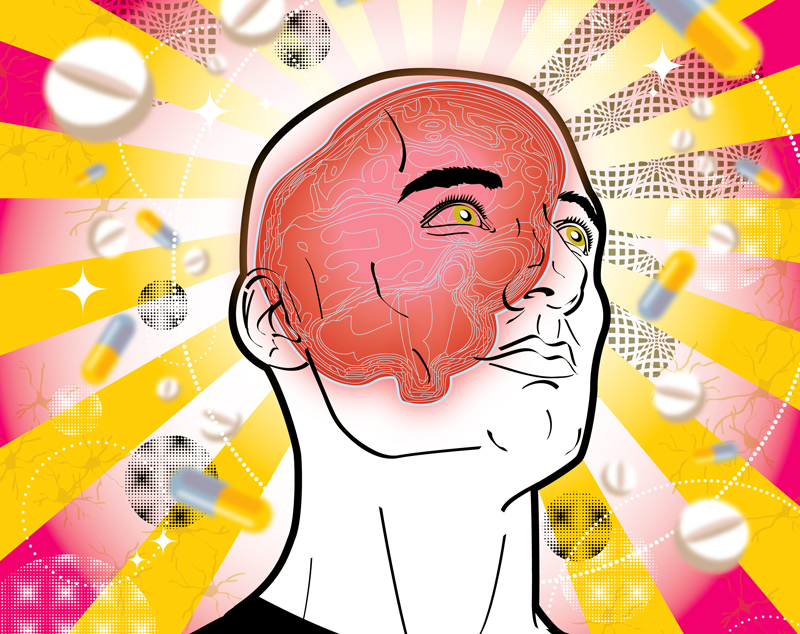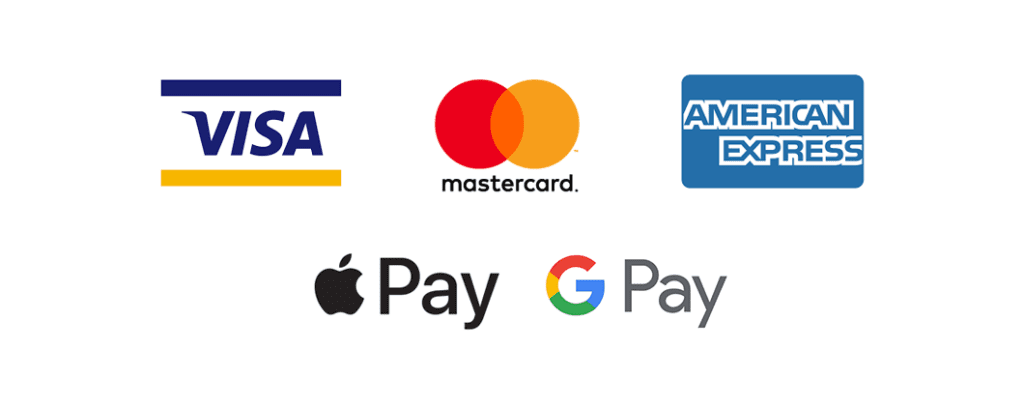
Stress is our body’s automatic response to a negative external trigger, such as a perceived threat, challenge, or obstacle. Typically, when discussing stress, we mean psychological stress, a state of emotional tension or pressure as a result of these factors.
We’ve all heard that psychedelics can reduce stress, but how? Psychedelics have recently been recognized as a tool that can be used to address a range of mental health problems—anything from depression and anxiety to addiction and stress disorders. In this article, we’ll explore the science behind psychedelic stress relief and give you 5 actionable tips.

What Does Science Say About Stress and Psychedelics?
The links between psychedelics and positive mental health benefits have been studied and well-documented since Albert Hoffmann’s historic self-experiments in 1943. On a day now famously known as “Bicycle Day”, Hoffmann purposefully ingested a large dose of LSD(250 μg). Though originally panicked by the substance’s effects, he later documented feelings of calmness and happiness. In the morning, Hoffmann recorded a sense of “well-being, pleasure with life, and a deeper appreciation for the beauty of the world about him.”
In 1955, a psychoanalyst had this to say about his first experience with LSD: “Problems and strivings, the worries and frustrations of everyday life vanished; in their place was a majestic, sunlit, heavenly inner quietude.” Since these early days of modern psychedelic experimentation, research has continued into how psychedelics affect mood and reduce anxiety and stress.
Studies have shown that psychedelics such as psilocybin, LSD, ketamine, MDMA, and DMT hold the potential to help with a variety of stress-related conditions such as obsessive-compulsive disorder, PTSD, generalized anxiety disorder, and end-of-life anxiety.

What Are The 5 Tips for Using Psychedelics for Stress Relief?
1. Consider Your Intention
If you’re reading this article, it’s likely that you’ve experienced stress at some point in your life and are curious about how you can alleviate it. The most important thing to do right off the bat is to get to know your stress.
It’s important to realize that there will always be an underlying cause of stress as well as triggers. No one experiences stress “just because.” And though medical and physiological factors are at play, the underlying cause will likely have something to do with a desire to control certain outcomes, a lack of self-love, a way you relate to the world, or loops created by past trauma. Knowing your stress will be the first way for you to get to the bottom of its root causes so that you can work towards alleviating it.
Once you know your stress, you can create an intention around addressing it. How specific can you get about what life will look like with reduced stress? Do you want less stress at work, less stress with relationships, or do you want to better understand how to deal with stress when it arises? The better you can pinpoint your intention, the easier it will be to use psychedelics to get there.
2. Prioritize Preparation
Along with the intention, you’ll have to put some thought into all aspects of your preparation— not only during the psychedelic experience but also your integration plans before and after the experience.
Good preparation essentially boils down to a few key things:
- Familiarize yourself with altered states of consciousness and practices that allow you to go inward (breathwork, meditation, yoga, journaling, etc.)
- Clear space for the experience by taking time off work (ideally the day before, during, and after the experience) and tidy up any loose ends to mentally clear space
- Have support in the form of a guide or trip sitter—someone sober who you feel comfortable with and who’s capable of keeping you safe and feeling supported
- Establish an appropriate set and setting by ensuring that you’re in the right headspace and are in a safe environment that has everything you should need (important personal items, comfy blanket/pillow, access to a toilet, water, snacks, HIDDEN car keys, etc.)
3. Explore Experience Options
Different experience options are typically associated with different intentions and outcomes. The type of experience you have will obviously be based on a few things beyond your control .
- Solo Experience: If you’re unable to head to a retreat or work with a psychedelic guide, you’ll likely end up doing psychedelics alone (i.e. not in a group but with a trip sitter). You’ll be responsible for ensuring that you have a safe environment that’s conducive to your goals.
- Psychedelic Guide: Legal psychedelic therapy (i.e. ketamine) or underground work with a psychedelic guide is an option that many people turn to when they have specific goals regarding psychedelics. Psychedelic guides typically have backgrounds/experiences in areas that can further benefit your healing (i.e. mental health professionals, shamans, etc.).
- Psychedelic Ceremony/Retreat: Most ceremonial psychedelic experiences take place outside of the US and occur over the span of several days or weeks. They’ll typically encompass additional aspects that may be beneficial towards your goals of stress relief—like yoga/meditation, intention setting, discussion with a shaman/healer, and connection with other participants.

4. Choose an Appropriate Dose
Ensuring an effective dose that’s going to meet your needs and fulfill your intention while remaining safe will ultimately be your responsibility.
- Macrodosing vs Microdosing: Microdosing can be thought of as a supplement approach while macrodosing can be considered a full reset. Both have positive benefits but will suit different situations/intentions in different ways.
A microdosing regimen can be a good way to support ongoing mood regulation. Taken every few days, it may help to provide stress relief over a certain period of time.
Macrodosing, on the other hand, may only take place once or a few times a year. These profound experiences can be thought of as a ‘reset’ that allows one to really explore the causes of the stress and work through them.
5. Integrate the Experience
The integration component of a psychedelic experience is just as important as the experience itself. Especially when you’re heading into a psychedelic experience with a specific desired outcome (i.e. stress relief), it’s crucial to recognize that the process isn’t complete as soon as the effects of the psychedelic fade.
Psychedelic integration will take place before the experience as a part of preparation, but it’s very important after the experience, too. While the integration process can happen on one’s own, it’s generally much more beneficial with the help of a psychedelic therapist or mentor who has firsthand experience with the substance—that’s what we do here at Psychedelic Passage.

Reduce Stress with Psychedelics
Beyond a diagnosis of PTSD, many people experience stress in their lives. Whether it’s from not meeting their own expectations or because of causes outside of their control.
Science shows us that addressing the symptoms of stress sometimes doesn’t work or causes other problems, and also gives us insight into how psychedelics can help with sustained healing. Psychedelics provide a much-needed shift in perspective, help us confront issues, or help us to connect with a higher being or source that helps us move through uncertainty.
Psilocybin for Stress

How Psilocybin Help
Exactly how psilocybin affects brain function and alleviates negative symptoms of mental health conditions is not yet fully understood. One hypothesis suggests that psilocybin resets the brain’s connectivity patterns, allowing for new perspectives to be drawn, and for emotional responses to be recalibrated.
Research suggests that psilocybin may have a positive effect on attitudes, mood, life satisfaction, gratitude, and behavior for up to a year.
LSD for Stress and Anxiety
How LSD Help
One of the mechanisms through which LSD affects brain function is through a specific serotonin receptor called 5-HT2A, the same receptor that antipsychotics and antidepressants impact. Some researchers hypothesize that LSD interacts with this serotonin receptor in a way that helps with emotional processing, opening new avenues for psychotherapy.
Research shows that LSD help with anxiety and stress. A study published in 2022 found that mice treated with a specific dose (daily for 7 days) of LSD showed decreased stress-induced anxiety-like behavior, in stressed mice compared to their non-stressed counterparts.
Ketamine for Stress
How Ketamine Help
Studies have shown that Ketamine has applications for anxiety disorders such as social anxiety and obsessive-compulsive disorder (OCD).Ketamine acts on one of glutamate’s receptors, a neurotransmitter with a variety of functions in the brain. One of glutamate’s many functions in the brain is to modulate the brain’s response to stress-inducing stimuli.

MDMA for Stress
How MDMA Help
MDMA promotes monoamine reuptake inhibition (MAOI) and release, effectively modulating fear memory reconsolidation (affecting the emotional connection to painful memories), reducing fear, and promoting prosocial behavior, all of which may have the potential to reduce stress and anxiety.
Studies into MDMA-assisted therapy have shown promising signs in the treatment of those suffering from PTSD. Researchers are also proposing that MDMA-assisted therapy may be beneficial for treating other stress-related conditions such as social anxiety disorder, general anxiety, and obsessive-compulsive disorder, markedly for those who are treatment-resistant.






